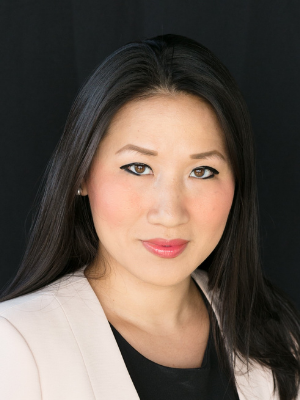 Over the coming months, theglasshammer.com will be writing a series of practical and insightful articles to help you thrive at work on your continued professional journey, however you define it. Living intentionally, avoiding burnout, reducing stress and achieving clarity around your professional and personal goals from an executive coaching perspective is our focus. Additionally, we will provide links to resources to really help you take meaningful steps on the journey to what you want to do and be.
Over the coming months, theglasshammer.com will be writing a series of practical and insightful articles to help you thrive at work on your continued professional journey, however you define it. Living intentionally, avoiding burnout, reducing stress and achieving clarity around your professional and personal goals from an executive coaching perspective is our focus. Additionally, we will provide links to resources to really help you take meaningful steps on the journey to what you want to do and be.
We are living in volatile, uncertain, complex and ambiguous times regardless of who you are and what you believe. Finding Zen can be elusive as we try not have jitters around markets, layoffs, job hunting, inflation and future client revenue pipelines. It’s easy to get caught up in the whirlwind of tasks, deadlines, and constant decision-making. For many executives, and perhaps working mothers (and fathers) most of all, the demands of their roles leave little time for reflection or intentional action. Yet, living intentionally—aligning daily choices with long-term values and goals—is one of the most powerful ways to achieve personal fulfillment, effective leadership, and career success.
But how does one begin to live intentionally in the midst of a demanding and often chaotic life? The answer lies in self-awareness, strategic planning, and conscious decision-making. An executive coach can play a pivotal role in guiding leaders through this process, helping them not only survive the daily grind but thrive with purpose and direction.
What Does It Mean to Live Intentionally?
Living intentionally is about making conscious choices that align with your values, long-term vision, and goals. It involves setting clear priorities, staying focused on what matters most, and avoiding distractions that do not contribute to your overall purpose. Instead of letting life happen to you, living intentionally means actively creating the life you want, one decision at a time. Work with our coaches [book here] to help you with the following:
- Setting Clear Goals: Identifying both short- and long-term objectives that are meaningful and fulfilling, rather than reacting to external pressures or obligations.
- Aligning Actions with Values: Making choices that reflect personal and professional values, ensuring that your actions support what you truly care about.
- Prioritizing Time and Energy: Understanding that your time and energy are finite, and choosing to allocate them toward high-impact activities that move you toward your vision.
- Self-Reflection and Growth: Regularly assessing your progress, learning from experiences, and adapting your strategies for continued improvement.
Living intentionally is not just about career success—it’s about creating a life that feels aligned and authentic. For executives, this might mean fostering healthier relationships, improving work-life balance, and contributing meaningfully to the larger organization or community.
How an Executive Coach Can Help You Live Intentionally
An executive coach is a trained professional who works one-on-one with leaders to help them achieve their personal and professional goals. Through a combination of coaching techniques, feedback, and structured exercises, an executive coach can help you clarify your vision, set strategic goals, and create actionable plans for achieving those goals. Here’s how an executive coach can specifically help you live more intentionally:
1. Clarifying Your Values and Vision
One of the first steps in living intentionally is having a clear understanding of your values and vision. Many executives are so focused on day-to-day operations that they haven’t taken the time to articulate what truly matters to them, both personally and professionally. An executive coach can guide you through exercises that help you clarify what you value most, whether that’s innovation, integrity, family, or something else.
Once your values are clear, your coach will help you create a vision for the future that aligns with these values. This vision becomes your compass for making decisions and setting goals, ensuring that every action you take moves you closer to your desired outcome.
2. Setting and Achieving Meaningful Goals
Setting goals is essential for living intentionally, but it’s equally important to ensure that these goals are meaningful and aligned with your long-term vision. An executive coach can help you set both big-picture and smaller, actionable goals. By breaking down large goals into manageable steps, your coach ensures that you stay on track and focused on what truly matters.
Additionally, your coach will help you avoid the trap of setting goals based on external pressures or fleeting desires. Instead, your goals will be rooted in your values and long-term vision, making them more likely to lead to fulfillment and lasting success.
3. Developing Strong Decision-Making Skills
Intentional living requires making decisions that reflect your values and move you closer to your goals. However, executives often face numerous decisions daily, and the sheer volume can lead to decision fatigue or reactive decision-making. An executive coach helps you develop the skills necessary to make decisions that are thoughtful, deliberate, and aligned with your larger objectives.
Your coach will help you create frameworks for evaluating decisions, ensuring that you prioritize what matters most. This process helps you avoid being swept along by external pressures and stay true to your vision.
4. Enhancing Time and Energy Management
For many executives, time is their most precious resource, and managing it effectively is crucial to living intentionally. An executive coach will work with you to assess how you currently spend your time and identify areas for improvement. They can help you establish priorities, delegate tasks more effectively, and create strategies for eliminating distractions and minimizing time-wasting activities.
By optimizing how you manage your time and energy, you free up resources to focus on the activities that truly drive your success and align with your purpose.
5. Improving Self-Awareness and Emotional Intelligence
Self-awareness is at the heart of intentional living. Understanding your strengths, weaknesses, emotional triggers, and behavioral patterns allows you to make more informed decisions and respond thoughtfully to challenges. An executive coach helps you increase your self-awareness by offering feedback, encouraging reflection, and guiding you through tools like emotional intelligence assessments.
By improving your emotional intelligence, you become better equipped to handle high-pressure situations, build stronger relationships, and lead with authenticity. This, in turn, contributes to a more intentional approach to leadership and life.
6. Creating Accountability and Sustainable Change
Living intentionally requires ongoing effort and commitment. An executive coach provides you with the accountability needed to stay on course, ensuring that you continue to make progress toward your goals. Your coach helps you set milestones, track your progress, and celebrate successes along the way.
Furthermore, a coach encourages you to reflect on your challenges and setbacks, learning from them and adjusting your approach as necessary. This continuous cycle of reflection and adaptation ensures that living intentionally becomes a sustainable practice, not just a one-time goal.
The Power of Intentional Leadership
Living intentionally is a transformative way of approaching both life and leadership. For executives, the demands of leadership can often push intentionality to the backburner, but making deliberate choices aligned with your values and long-term vision is the key to sustaining success, happiness, and personal fulfillment.
An executive coach can be an invaluable partner in this journey, offering clarity, guidance, and support to help you create a life that reflects your highest aspirations. Whether you’re looking to refine your decision-making, manage your time more effectively, or develop deeper self-awareness, working with a coach can provide the tools and accountability you need to live and lead with intention.
By investing in intentional living, executives can build more balanced, impactful careers while enjoying greater satisfaction and well-being in both their professional and personal lives.
By Nicki Gilmour, executive and leadership coach, founder and CEO of theglasshammer.com



